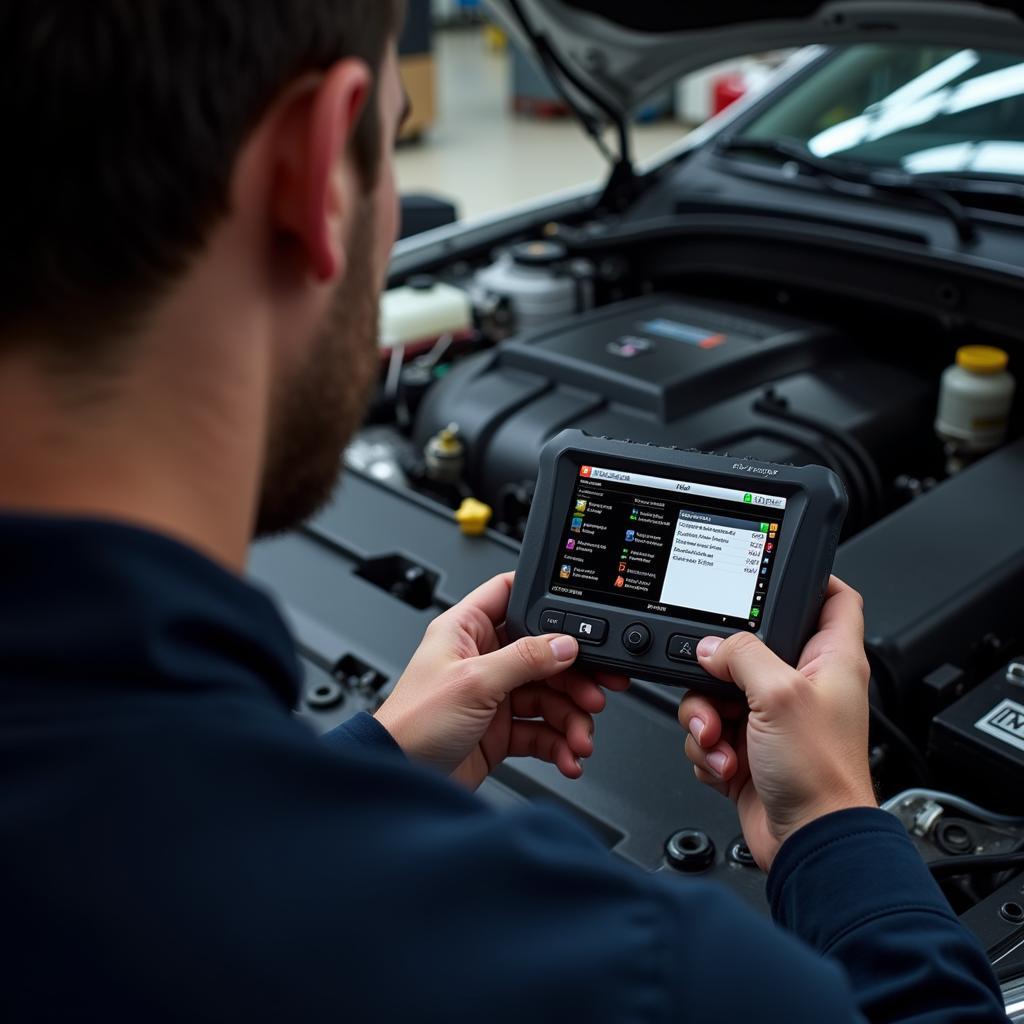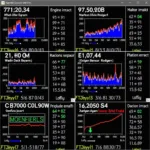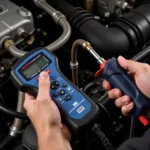The world of OBD2 diagnostics can seem complex, especially when delving into the realm of custom OBD2 PIDs (Parameter IDs). These unique codes offer a gateway to access specific data points within your vehicle’s systems that standard OBD2 scanners might not readily reveal. This article will delve into the intricacies of custom OBD2 PIDs, their significance, and how you can leverage them to gain deeper insights into your vehicle’s performance.
What are Custom OBD2 PIDs?
Think of your car’s onboard computer as a vast library filled with information about its health, performance, and various operations. Standard OBD2 scanners provide access to the most common books in this library – information like engine RPM, coolant temperature, and oxygen sensor readings. However, there are countless other valuable books tucked away in specialized sections – these are the custom OBD2 PIDs.
Essentially, a custom OBD2 PID is a unique code that corresponds to a specific parameter or data point within your vehicle’s computer system. These parameters are not universally standardized like their common counterparts and might vary between car manufacturers, models, or even specific engine configurations.
Why Use Custom OBD2 PIDs?
The real power of custom OBD2 PIDs lies in their ability to unlock a treasure trove of information that might otherwise remain hidden. Here’s why you might want to venture beyond standard OBD2 data:
- Advanced Diagnostics: Custom PIDs can reveal information crucial for diagnosing complex issues that generic codes might not pinpoint. For example, monitoring transmission fluid temperature or fuel injector duty cycle can be invaluable for specific troubleshooting.
- Performance Tuning: Enthusiasts and tuners often utilize custom PIDs to fine-tune their vehicles for optimal performance. Accessing parameters like ignition timing advance, boost pressure, or air-fuel ratios can be instrumental in squeezing out every ounce of power.
- Vehicle Monitoring: Custom PIDs allow you to keep a close eye on specific aspects of your car’s operation, such as battery voltage under load, exhaust gas recirculation (EGR) valve position, or even the status of individual sensors.
 Custom OBD2 PID Diagnostics
Custom OBD2 PID Diagnostics
How to Find and Use Custom OBD2 PIDs?
While the concept of unlocking hidden data from your car sounds exciting, finding and using custom OBD2 PIDs can be a bit more involved than plugging in a generic scanner. Here’s a breakdown of the process:
- Identify Your Vehicle’s Specific PIDs: Unlike standardized PIDs, finding custom ones requires some research. Online forums, manufacturer-specific documentation, and dedicated OBD2 PID databases are your best bets.
- Choose the Right OBD2 Software or Hardware: Not all OBD2 scanners and software are created equal. Many basic scanners only support standard PIDs. You’ll likely need an advanced scanner or software that allows inputting custom PID codes.
- Input the PID and Interpret the Data: Once you have the correct PID and compatible tools, input the code into your scanner or software. The displayed data will likely be in a raw format, requiring interpretation based on the parameter’s definition and units of measurement.
Considerations and Precautions:
While custom OBD2 PIDs offer valuable insights, it’s essential to proceed with caution:
- Compatibility Issues: Not all vehicles support all custom PIDs. Using incorrect codes or those incompatible with your car’s system can lead to erroneous readings or even potential communication errors.
- Data Interpretation: Raw data from custom PIDs needs careful interpretation. Misunderstanding the parameter’s meaning or units can lead to incorrect conclusions about your vehicle’s condition.
- Potential Risks: While generally safe when used correctly, there’s always a slight risk of disrupting vehicle systems when accessing sensitive parameters. Always double-check PID codes and proceed cautiously.
Custom OBD2 PIDs: A Powerful Tool for the Informed Car Owner
Custom OBD2 PIDs offer a powerful window into the intricate workings of your vehicle, providing access to data that goes beyond the capabilities of standard OBD2 scanners. However, this deeper level of access comes with the responsibility of understanding the intricacies involved. By researching thoroughly, using the right tools, and interpreting data cautiously, you can leverage custom PIDs to gain valuable insights into your car’s performance, diagnose issues with greater accuracy, and unlock a whole new level of automotive knowledge.
[tpms obd2 pid]
Frequently Asked Questions about Custom OBD2 PIDs:
Q: Can I use any custom OBD2 PID on my car?
A: No, custom PIDs are not universal. They vary between car manufacturers, models, and even engine configurations. Always verify compatibility before using any custom PID.
Q: Where can I find a list of custom PIDs for my vehicle?
A: Online forums, manufacturer-specific documentation, and dedicated OBD2 PID databases are good sources for finding custom PIDs.
Q: What type of OBD2 scanner do I need to use custom PIDs?
A: Not all scanners support custom PIDs. You’ll likely need an advanced scanner or software that specifically allows inputting and monitoring custom codes.
Q: Is it safe to use custom OBD2 PIDs?
A: While generally safe when used correctly, there’s always a slight risk of disrupting vehicle systems when accessing sensitive parameters. Always double-check PID codes and proceed cautiously.
[torque pro obd2 bluetooth]
Q: What should I do if I encounter an error message when using a custom PID?
A: Double-check the PID code for accuracy and ensure it’s compatible with your vehicle. If the issue persists, consult your vehicle’s service manual or seek advice from a qualified mechanic.
Need Help With Your OBD2 Needs?
Contact us on WhatsApp: +1(641)206-8880 or email us at [email protected] for 24/7 customer support.

